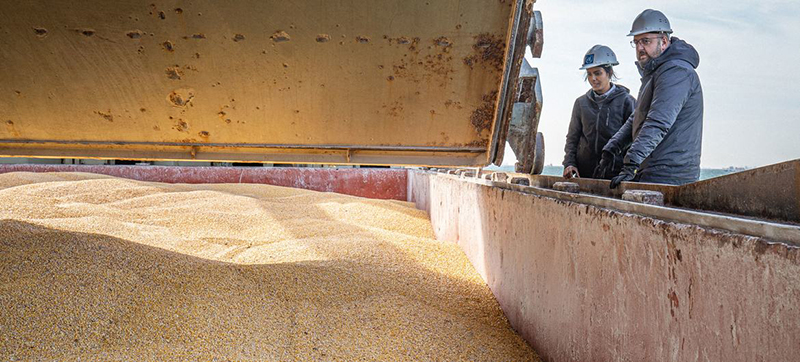Russia confirms participation in grain deal for at least 60 more days

New York: Russia has confirmed that it will continue to take part in the UN-brokered Black Sea Initiative for a further 60 days, the UN Secretary-General said on Wednesday.
Speaking at the daily press briefing, António Guterres welcomed Russia’s decision to continue its involvement in the Initiative, which has allowed the safe export of more than 30 million tonnes of grain and other foodstuffs from Ukraine, via its Black Sea ports, and also aims to ensure the flow of food and fertilizer from Russia, through a Memorandum of Understanding.
The Initiative began in July last year, and is run by a Joint Coordination Centre (JCC), staffed with representatives from Russia, Ukraine, the United Nations, and Türkiye, headquartered in Istanbul.
'Good news for the world'
Mr. Guterres said the continuation was “good news for the world” although outstanding issues remain to be resolved.
“But representatives of Russia, Ukraine, Türkiye and the United Nations will keep discussing them – I hope we will reach a comprehensive agreement to improve, expand and extend the Initiative – as I proposed in a recent letter to the Presidents of the three countries.”
Mr. Guterres conveyed his appreciation to all the parties involved in the negotiations for continuing the deal, for proceeding “in a spirit of constructive engagement.”
He thanked President Recep Tayyip Erdoğan and the Turkish Government for their efforts, “working in permanent coordination with the United Nations” through the JCC.
He said that both the Initiative and the Memorandum of Understanding between the UN and Russia over fertilizer and foods, matter for global food security.
“Ukrainian and Russian products feed the world”, with vital supplies reaching some of the world’s most vulnerable thanks to the deal, “including 30,000 tons of wheat that just left Ukraine aboard a WFP-chartered ship to feed hungry people in Sudan”, the UN chief continued.
'Always a beacon of hope'
“They matter because we are still in the throes of a record-breaking cost-of-living crisis. Over the last year, markets have stabilized, volatility has been reduced and we have seen global food prices fall by 20 per cent.”
He said that the agreements mattered because the demonstrated that “even in the darkest hours, there is always a beacon of hope and an opportunity to find solutions that benefit everyone.”
The UN chief added that he hoped exports of food and fertilizer from both Ukraine and Russia, would reach global supply chains “safely and predictably”, as envisaged by all participants.
The UN is fully committed to support both agreements, he concluded.



